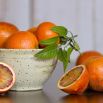Health
12 Creative Spins That Give Fries A Delicious Upgrade
Fake Whiskey: Tips To Avoid Fake Or Misleading Bottles
The global whiskey industry is booming and, sadly, so is the market for counterfeit bottles. Over the past few years, from China to the US, countless reports of fake bottles have surfaced. And those are the ones we hear about. It's all too easy these days for frauds to create fake bottles. It's often as simple as getting an empty bottle, filling it, and resealing it. A 'bran' new way to preserve healthy food with natural ingredients
A natural antioxidant found in grain bran could preserve food longer and replace synthetic antioxidants currently used by the food industry, according to researchers at Penn State. One in 5 kids with food allergies treated in emergency department in past year
Researchers from Ann & Robert H. Lurie Children's Hospital of Chicago and colleagues estimate that nearly 8 percent of U.S. children (about 5.6 million) have food allergies, with nearly 40 percent allergic to more than one food. These findings were based on their latest national food allergy prevalence survey, which assessed over 38,000 children. Study: Mangos help promote gut health
Study: Mangos help promote gut health Next time you suffer from constipation, you may want to consider grabbing a mango instead of reaching for a fiber supplement, suggests a new Texas A & M University pilot study published in the peer-reviewed journal Molecular Nutrition and Food Research. Study: Farming crops with rocks to reduce CO2 and improve global food security
Study: Farming crops with rocks to reduce CO2 and improve global food security Farming crops with crushed rocks could help to improve global food security and reduce the amount of CO2 entering the atmosphere, a new study has found. Food fraud in China leads to opportunities for EU products
Food fraud in China leads to opportunities for EU products The perceived safety and quality of food imported from Europe into China provides commercial opportunities for European food producers, research has found. Rice becomes less nutritious as CO2 levels rise
Rice becomes less nutritious as CO2 levels rise Increased carbon dioxide in the atmosphere will reduce the nutritional value of rice, according to an international research team that analyzed rice samples from field experiments started by a University of Tokyo professor. Drinking baking soda could be an inexpensive, safe way to combat autoimmune disease
Drinking baking soda could be an inexpensive, safe way to combat autoimmune disease A daily dose of baking soda may help reduce the destructive inflammation of autoimmune diseases like rheumatoid arthritis, scientists say. One in 10 parents say their child has gotten sick from spoiled or contaminated food
One in 10 parents say their child has gotten sick from spoiled or contaminated food No parent wants to come home from a picnic or restaurant with a little one whose stomachache turns into much worse. Research supports calls for food industry to reduce food product portion sizes
Research supports calls for food industry to reduce food product portion sizes New research, published in the American Journal of Clinical Nutrition, highlights the benefits of the food industry changing food product portion sizes in order to make healthier eating more normal. Study: Teens likely to crave junk food after watching TV ads
Study: Teens likely to crave junk food after watching TV ads Teenagers who watch more than three hours of commercial TV a day are more likely to eat hundreds of extra junk food snacks, according to a report by Cancer Research UK. 3-D printed food could change how we eat
3-D printed food could change how we eat Imagine a home appliance that, at the push of a button, turns powdered ingredients into food that meets the individual nutrition requirements of each household member. Study finds high rates of type 1 diabetes near food swamps
Study finds high rates of type 1 diabetes near food swamps Hotspots of type 1 diabetes in New York City are found in food swamps, areas with a higher proportion of fast food restaurants, for children and adults with type 1 diabetes, according to a new study published in the Endocrine Society's Journal of the Endocrine Society. Deep learning predicts drug-drug and drug-food interactions
Deep learning predicts drug-drug and drug-food interactions A Korean research team from KAIST developed a computational framework, DeepDDI, that accurately predicts and generates 86 types of drug-drug and drug-food interactions as outputs of human-readable sentences, which allows in-depth understanding of the drug-drug and drug-food interactions.
MOST Read
Is the Aldi Store Closures Announcement Real? When Will It Happen and How Will It Affect Shoppers
Charlie Kirk Starbucks Order Sparks Outrage After Barista Refuses to Write His Name
Will Starbucks Restock the Bearista Cup? Outrage as Viral Item Resells for Up to $1,000
UK Supermarkets Warn Rachel Reeves: Tax Hike Would Bring 'Inevitable' Blow to Food Prices
Albertsons Issues Recall of Pasta Salads, Deli Meals Across Multiple States
News









